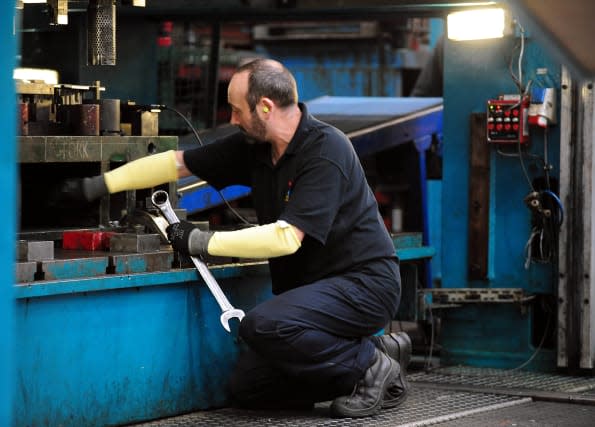UK economic growth expected to show pre-Brexit boost in first quarter

Britain’s economic growth is expected to have accelerated in the first quarter, but economists warned that the boost will not be reflective of the delay to Brexit.
Economists believe that gross domestic product (GDP) growth slowed to 0.5% in the three months to March.
It comes after growth slowed to 0.2% in the final quarter of last year, meaning annual GDP for 2018 grew just 1.4%, the weakest level since 2009.
Economists expect an uplift to growth in early 2019, mainly due stockpiling in the manufacturing sector and to a smaller extent by consumers amid concerns that a no-deal Brexit would occur at the end of March.
Howard Archer, chief economic adviser to EY Item Club, said this jump in activity would not translate into a longer term trend for growth, thanks to the postponement of the Brexit deadline.
“Delays to Brexit, a difficult domestic economic and political backdrop and slower global economic activity have resulted in a weaker outlook for UK GDP growth this year,” he said.
“Prolonged uncertainty is likely to impact on businesses’ willingness to invest and commit to any new major projects.
“There is also likely to be a hit to economic activity from some unwinding of the stockpiling that occurred in Q1.”
In addition to manufacturing, momentum is expected in the real estate sector, especially industrial lettings which benefited from companies using additional space for stockpiling.
Mr Archer also warned that consumer spending could come under pressure as the economy fails to pick up steam.
“Many employers will be keen to limit their labour costs, which will also impact employment growth, and there are signs in recent surveys that the growth in pay awards has already levelled off,” he said.
“Consumers may therefore be cautious about making major purchases and the recent strong retail sales growth might falter.”
The consensus forecasts put economists in line with the Bank of England, which last week said it now expects growth to surge to 0.5% between January and March, up from 0.2% in the final quarter of 2018.
But the central bank warned the fillip with fade fast, with growth set to slow sharply to 0.2% in the second quarter and remain “subdued” in the face of Brexit uncertainties.
However it upped its annual growth forecast to 1.5% this year, up from the paltry 1.2% predicted in February thanks largely to a more stable global economic outlook.


